#semitic language
Text
Exploring the Richness of Eritrean Afro-Asiatic Languages: Tigre language, Tigrinya, and Alphabet Differences
Unraveling the Secrets of the Ancient Tigre Language
Are you curious about the ancient languages of the world? Have you ever wondered about the cultures and daily lives of people who speak lesser-known tongues? If so, then this article is a must-read for you. We’ll delve into the fascinating world of the Tigre language, spoken by the Tigre people in parts of Eritrea and Sudan. Prepare to be…

View On WordPress
#Cultural Heritage#Ge&039;ez script#Interpretation Services#Language Services#On-Demand Interpreting#over the phone interperting#Semitic language#Tigre language#Tigre people
1 note
·
View note
Text
Yiddish 🤝 Persian 🤝 Spanish = Indo-European languages whose modern form is in part defined by a mass integration of Semitic vocabulary into all domains of the lexicon, including verbs, nouns, and discourse markers
#Linguistics#it’s just soooo cool there’s a language that had a full on form in Lithuania with Semitic words#Periphrastic verbs let’s talk periphrastic verbs#Yiddish#Spanish#Persian
269 notes
·
View notes
Text
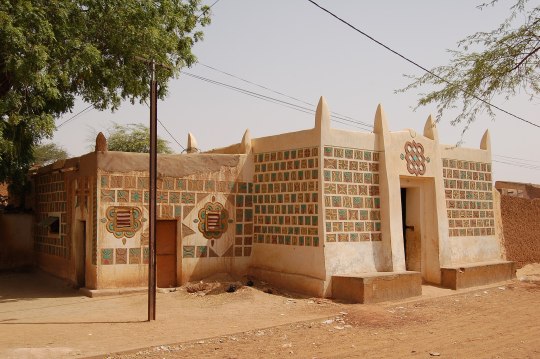
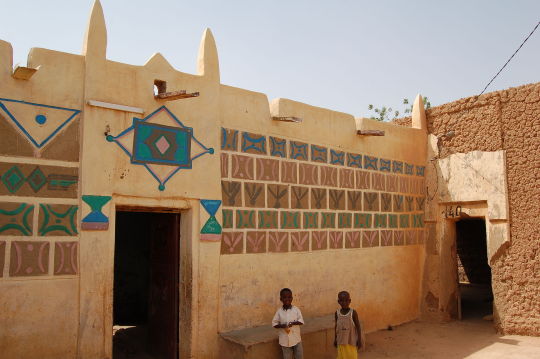
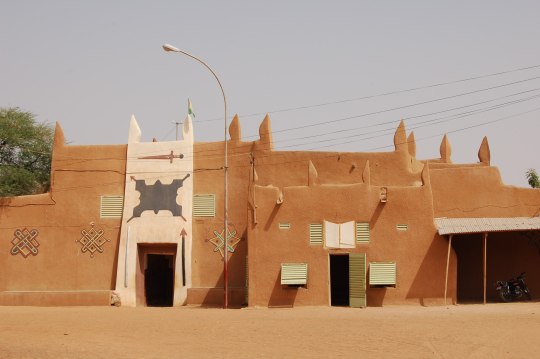
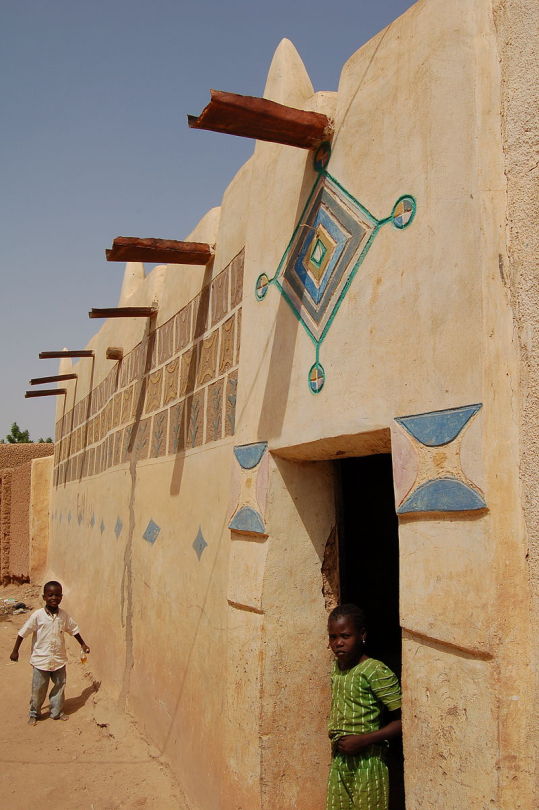
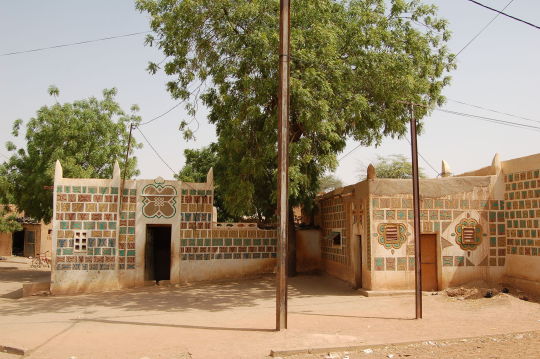
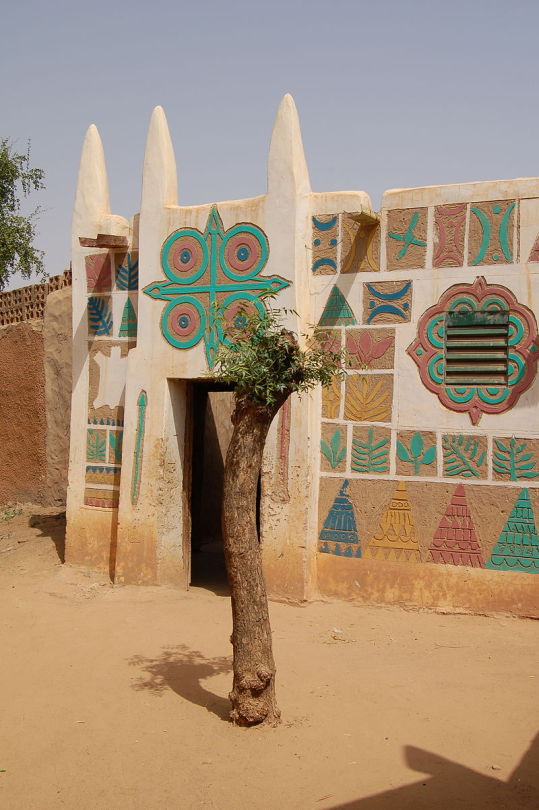
some of the architecture of zinder, niger. zinder rose from a small hausa village into an important center of trans-saharan trade during the 18th century, culmunating in it becoming the capital of the sultanate of damagaram in 1736.
#niger#hausa#architecture#my posts#in case you didn't know: hausa is a part of the afroasiatic language family (same family semitic langs are in)#there's a lot of theories about how exactly afroasiatic speakers spread & there isn't a consistent cultural/migration pattern#like w/ indo-euro languages#but hasua is probably to arabic/hebrew/syriac what english is to bengali or assamese (except even less similar)#i can pick out some hausa words myself ('sama' is 'heaven') but tbh im not sure how many are loadwords from arabic (since they use#'dunya' for 'world' for example). most hausa are muslim so itd make sense if they took some arabic words
612 notes
·
View notes
Text
back in the day there was this popular youtuber post that had a message that essentially said “your heroes have been through so much and they succeeded, you can too” and had all these youtubers and listed their biggest trouble that they overcame in life and some peoples were abuse and others were diseases like addiction and cancer and generally listed a bunch of harrowing experiences. phil’s was that he was bullied, which was one of the ‘lighter’ topics listed. and then dan’s was that he’s left handed. all of those traumatic and difficult topics and dan’s was that he has to get special scissors for his left hand dominance.
#im gonna try to find that post bc it was so funny#i got soooo much hate for pointing out how dan’s was actually kind of insulting compared to all of that and also.. like left handedness is#not like… a trauma or horrible illness or anything…#just something that many people from semitic language regions have#at that time we also knew dan got bullied idk why they both weren’t just that they were bullied lmao#amazingphil#phil lester#dan and phil#terrible influence tour#dan howell#dnpgames#dnptit#phan
76 notes
·
View notes
Photo

Current semitic languages in the world.
by Crazy-Boris
166 notes
·
View notes
Text
I love maps! And languages! Here's both!
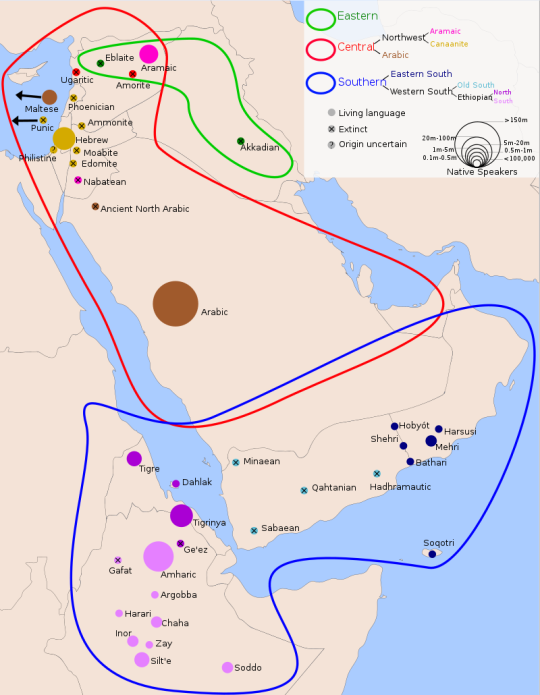
Although I'm not sure why Ge'ez is marked as extinct; it's no longer used as a vernacular language but is still used as a liturgical language by Jewish and Christian communities from Ethiopia and Eritrea.
#that would be like saying hebrew was extinct before zionism#it very much wasn't it just wasn't a vernacular#semitic languages#hebrew#arabic#aramaic#amharic#maps#languages#loon.txt
36 notes
·
View notes
Text
was talking to my friend about how i feel silly calling myself a bby linguist when it's "just a special interest" and not something i'll ever be professionally. they pointed out: a special interest i've spent years learning in various ways outside of academia. through multiple ongoing study groups with friends i've made bc they also love learning these languages, countless books and hyper niche journals, videos, and lotsssssss of study practice.
i learn languages very slowly and grammar fucks me up which gives way to imposter syndrome & being bad at my passion. but id rather spend my days buried in ancient languages and painstakingly learning the philosophies, histories, and methodologies of translation and linguistics than study anything else this in depth more easily.
i've done presentations for study groups on translations of specific words and how vast the interpretations could be as a result. like did you know the whale (it's actually a giant fish) in the biblical story of jonah is a masculine noun in the beginning of the story and changes to a feminine noun later on? and how much that confused the fuck out of early commentators? JUST ONE WORD!! it's beautiful.
i know grammar structures of multiple germanic languages & semitic languages. that's not nothing!! that is COOL actually.
academics are people who are *mostly* able to afford to study their special interests is the way i'm choosing to look at it. barriers don't mean my studies are less important.
#dont mind me just trying to boost my own confidence#i focus a lot on translations of torah among the semitic languages including the ancient ones#i partake in daf yomi and study chunks of talmudic text in its original aramaic and biblical hebrew#being in jewish communities means i get lovely exposure to yiddish and ladino as well as their histories#i luv languages#since my family is from north africa im also highly interested in amazigh languaged especially the endangered ones#linguistics#special interest
8 notes
·
View notes
Text
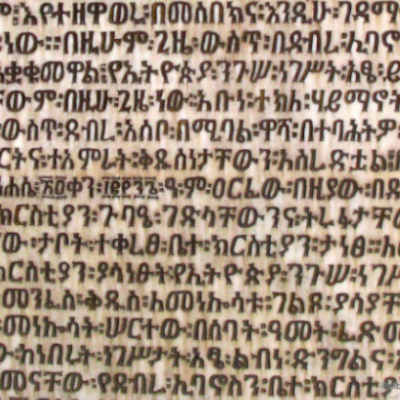



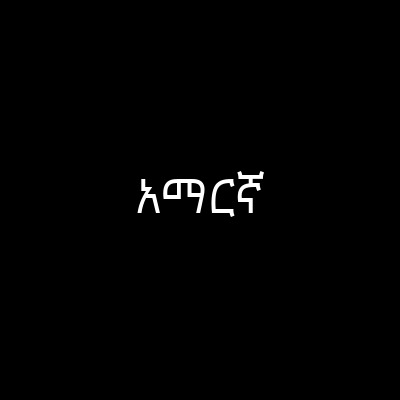


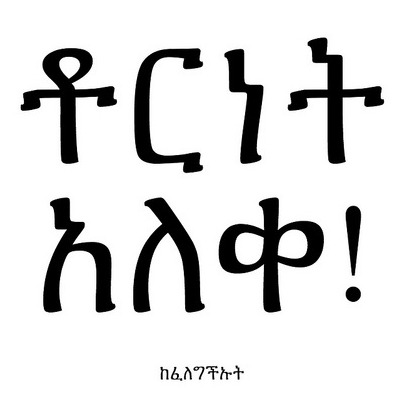
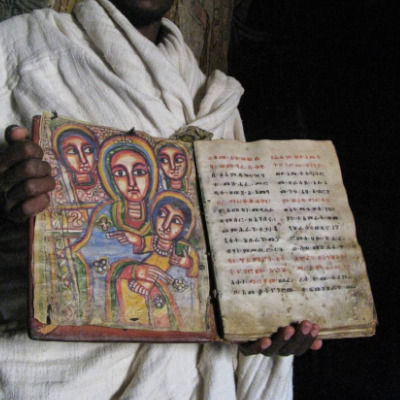
Aesthetic of the languages on earth : Amharic
Amharic is a Semitic language spoken by 57 million people in Ethiopia. It is an official language in Ethiopia.
53 notes
·
View notes
Text
What is the word love in Arabic?

The word "love" in Arabic is حُبّ, pronounced as "ḥubb. The word حَبَّ pronounced as "ḥabba", It means "to love".
I love you" in Arabic is "أحبك" (pronounced: uḥibbuka for addressing a male and uḥibbuki for addressing a female)
What is the word love in Persian?
#ancient mesopotamia#mesopotamia#ancient history#semitic languages#arabic language#learn arabic#lovers#love#ancient words for love
6 notes
·
View notes
Text
I’m bored, so here’s a little linguistic “what if…”
So proto Semitic (according to some constructions) had the phonemes /θ/ and /ð/ (the th sounds in English and the letters ث and ذ in (at least standard) Arabic). In the Semitic languages, if they shifted it was either to /ʃ/ (like sh in English) and /z/ (in Akkadian and the Canaanite languages) or /t/ and /d/ (like in Aramaic and some varieties of Arabic).
Now the thing is, that like I said those sounds exist in English, but there’s one (maybe more, I’m not sure) British accent where they shifted to /f/ and /v/.
So theoretically there could be a Semitic language where the number three is “falaaf”, which due to vowel reduction can shift to “flaf”, and that sounds like the English word “fluff” so speakers of this language could write #3 instead of #fluff
9 notes
·
View notes
Text
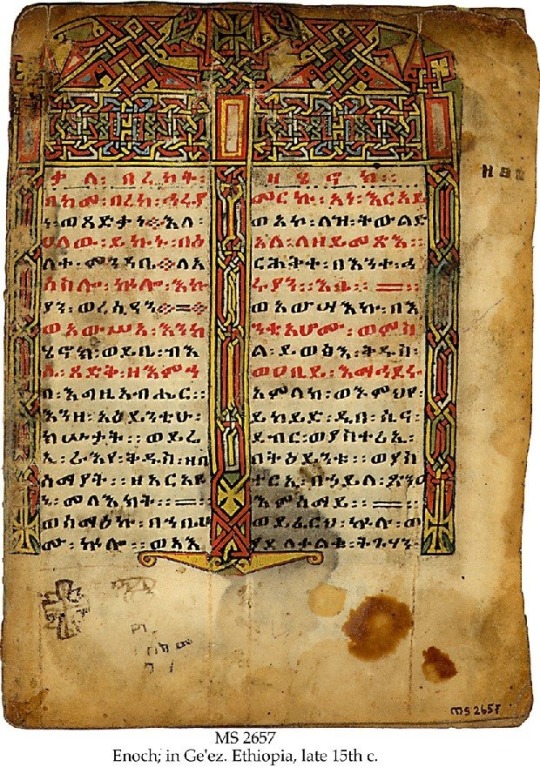
What modern-day ethnic groups have the most Semitic ancestry?
There is no such thing on Earth as Semitic ancestry. This is a common misnomer and one of the oldest and most ignorant of our century.
Semitic is about LANGUAGE, not ethnicity just like Bantu is about language not ethnicity.
Ethnicities who have native Semitic languages are
Arabs many Ethiopians and Native Hebrew speakers. The continent with the most number of Semitic languages is Africa! The greatest number of speakers of Semitic languages is Arabic.
#african#afrakan#kemetic dreams#africans#afrakans#african culture#semitic#semitic languages#ethnicities#arabs#ethiopians#native hebrew#arabic
24 notes
·
View notes
Text
Okay so technically you can still use ao3 😒 just don’t donate to them until they’re willing to address why some of their higher member staff are against Palestine, if they will address at all. Giving the benefit of the doubt maybe not all of them are and aren’t even aware of the situation.
This isn’t like Instagram or Facebook where they track you and make money that way. They need donations to stay afloat. The site traffic and deleting your fan works does nothing.
Apparently another site you can use with a similar layout is SquidgeWorld. Idk take that with a grain of salt.
#shitpost#shitposting#ao3#archive of our own#also please for the love of god if you think supporting Palestine is antisemitic please#PLEASE#Look up Semitic languages#some of yall are dumb#free palestine#🍉🍉🍉
13 notes
·
View notes
Text

Au Revoir les Enfants (1987). A French boarding school run by priests seems to be a haven from World War II until a new student arrives. Occupying the next bed in the dormitory to the top student in his class, the two young boys begin to form a bond.
Devastating on so many levels. This just works, somehow avoiding scenes of overt sentimentality or violence, let leaving you feeling the aching reality of both. Incredible performances from the young cast, lush cinematography, and a script that somehow manages to feel both sprawling and entirely focused. Pretty close to perfect, really. 9/10.
#au revoir les enfants#1987#Oscars 60#nom: original screenplay#nom: foreign language film#louis malle#gaspard manesse#raphael fejto#francine racette#world war ii#france#french#anti-semitism#coming of age#9/10
8 notes
·
View notes
Text
another mena language post - i wanted to talk about judeo-arabic and clarify a little bit about what "judeo-arabic" means
the basics, for those of you who don't know: arabic, being a language that was spread over a large part of the world and has since evolved into many different forms, has many different things that differentiate certain dialects. languages/dialects can be influenced by languages speakers' ancestors spoke before, by the social structure of where speakers live, by languages they come into contact with, and by gradual evolution in pronunciation. (many letters like evolving into ones that are easier to pronounce - this is why arabic has no "p" sound, it eventually evolved into "f" or "b". the same thing happened in germanic languages to some extent, which is why we say "father" in english and "vader" in german while in romance languages it's some variation of "padre" or "père".) many arabic dialects in particular possess different substratum (obvious, traceable influence from languages people spoke in before shifting to the new one).
arabic, being a language that was spread over a large part of the world and has since evolved into many different forms, has many different regional dialects which are different for the reasons i described in the above paragraph. even though there's modern standard arabic (which is the subject of its own post), people speak regional dialects in real life. on top of that, there's a variety of social influences on different types of arabic, such as whether someone's living in the city or in the country, whether someone's sedentary or a bedouin, and in some cases religion.
in the middle east, religion was historically:
not seen as a personal choice, but as something you're born into and a group you're a part of, kind of like ethnicity;
not generally something governments actively wanted everyone to share one of at the penalty of ostracization due to sticking to your group being the more livable way of life in the area, or later, the benefits of things like imposing extra taxes on people who weren't the "correct" religion/branch (this is far from being a "muslim thing" btw, it's been in the area for a while now, i mean look at the assyrians);
an influential factor in where you lived and who you were more likely to interact with because of those two things. (for example, it wasn't uncommon for most of the people living in one village in the countryside to share one religion/branch of a religion. if your village converted, you converted, too. if they didn't, you didn't, either.)
this means that the influence of religion in different types of arabic is due to people of different religions living in or coming from different places, and who people talked to most often.
for example, in bahrain, most sedentary shia bahrainis' ancestors have lived on the island for a very long time, while most sedentary sunni bahrainis' ancestors immigrated from other places in the gulf and iran in the 18th century. therefore, while they've all interacted and shared different aspects of their dialects including loanwords, there are two "types" of bahraini arabic considered distinctive to sunni and shia bahrainis respectively, regardless of how long ago their ancestors got there. despite the differences being marked by the religion of the speakers, they have nothing to do with religion or contact/lack thereof between bahraini sunni and shia, but with the factors affecting the different dialects i mentioned in the first paragraph which influenced either group.
a similar phenomenon to this in english is class differences in accent in england. nothing in received pronunciation is actually something only rich people can say or unintelligible to poor people, it developed by the class differences influencing where rich and poor english people lived and the different pronunciation/linguistic histories in those places, as well with different classes keeping more to themselves.
the influence of religion on arabic dialects isn't universal and nowhere near as intense as it is with aramaic. some places, especially more cosmopolitan or densely populated places, are less likely to have very noticeable differences or any differences at all. in addition, certain variations of a dialects that may've been influenced by religion in some way (as well as urban dialects) may be standardized through tv/movies/social media or through generally being seen as more "prestigious", making more people who wouldn't have spoken them otherwise more likely to pick it up. (this is why so many arabic speakers can understand egyptian arabic - cairo is like the hollywood of the arabic-speaking world.) this is the case with many if not most countries' official and regional languages/dialects nowadays.
this phenomenon is what "judeo-arabic" refers to generally. like many other jewish diaspora languages, the "jewish" aspect is that it was a specific thing jewish people did to different types of arabic, not that it was isolated, possessed a large enough amount of certain loanwords (though some varieties did have them), or is unintelligible to non-jews. people were generally aware of differences where they existed and navigated between them. (for example, baghdadi jews may've switched to the more prestigious muslim baghdadi dialect when in public.) if you know arabic, listen to this guy speak, you should be able to understand him just fine.
judeo-arabic also often used the hebrew alphabet and some may have been influenced by hebrew syntax and grammar in their spelling. you can also see the use of script for religious identification in persian and urdu using the arabic script, and in english using the latin alphabet. in general, influences of hebrew/aramaic on different types of judeo-arabic aren't consistent. you can read more about that here.
"judeo-arabic" isn't a universal that definitely happened in every arabic-speaking part of the world that had jews in it to the same degrees, but it did definitely exist. some examples:
after the siege of baghdad in 1258, where mongols killed all muslim baghdadis and spared baghdadis of other religions, bedouins from the south gradually resettled the city. this means that the "standard" sedentary dialect in the south is notably bedouin influenced, while dialects in the north are more notably influenced by eastern aramaic. christians and (when they lived there) jews in baghdad have dialects closer to what’s up north. within those, there's specific loans and quirks marking the differences between "christian" and "jewish".
yemenite jews faced some of the most persistent antisemitic persecution in the middle east, so yemeni jewish arabic was more of a city thing and often in the form of passwords/codewords to keep jews safe. jews were usually a lot safer and better-regarded in the countryside, so jewish yemeni arabic was much less of a thing there, and when it was, it was less "serious".
due to the long history of maghrebi immigration to palestine, there's attestation of maghrebi influences in arabic spoken by some palestinian jews with that origin. this was also a thing in cairo to some extent.
(i'd link sources, but most of them are in hebrew, i guess you'll have to trust me on this one??)
still, the phrase "judeo-arabic" is often used with the implication that it was one all encompassing thing (which it wasn't, as you can see), or that jews everywhere had it in some way. many jews who spoke some version of arabic special to their mostly-jewish locale may not have registered it as a specifically "jewish" version of arabic (though they did more often than not). the truth is that research about anything related to middle eastern and north african jews is often sloppy, nonexistent, and often motivated by the desire of the researcher to prove something about israel's colonization of palestine (on either "side" of the issue). this is not me being a centrist about the colonization of palestine, this is me stating that academia is often (even usually) influenced by factors that aren't getting the best and most accurate information about something. i don't think we're going to get anything really "objective" on arabic spoken by jews in that regard for a long while.
for comparison's sake: yiddish is considered a separate language from german due to 19th century yiddishists' efforts to "evolve" yiddish from dialect to language (yiddish-speaking jews were said to speak "corrupted german" historically; on that note sephardim were also said to speak "corrupted spanish"). this was at a time when ethnic nationalism was en vogue in europe and declaring a national language meant declaring your status as a sovereign nation (both metaphorically and literally). for yiddishists to assert that they were speaking a language and not a dialect that intrinsically tied them to germans was to reject the discrimination that they were facing. (besides, german/austrian/swiss jews weren't speaking yiddish (leaving it with the connotation of being the language of those icky ostjuden), yiddish-speaking jews had practically zero other ties to germany/austria/switzerland, and yiddish-speaking jews (let alone the yiddishists) were almost entirely east of germany/austria/switzerland, so it's not like they were pulling this out of their ass.)
whether a jewish person of arabic-speaking descent calls it "arabic", "judeo-arabic", or something like "moroccan"/"syrian"/etc depends on who you're talking to, where they're from (both diaspora origins and today), how old they are, and what they think about zionism. despite "judeo-arabic" being what it's called in academia, on the ground, there's no real strong consensus either way because the social circumstances arabic-speaking jews lived in didn't drive them to form a movement similar to yiddishists. (not because there was no discrimination, but because the political/social/linguistic circumstances were different.) the occupation since made the subject of middle eastern jews’ relation to the middle east a contentious topic considering the political and personal weight behind certain cultural identifiers. the term "judeo-arabic" is modern in comparison - whether it's a distinction dredged up by zionist academics to create separations that didn't really exist or a generally accurate term for a specific linguistic phenomenon is a decision i'll leave you to make.
#jewish#mizrahi#languageposting#my posts#my own opinion is it doesn’t matter what you label a language because it doesn’t erase its history#what we think of as a ''language'' or ''dialect'' is arbitrary#technically hebrew arabic and aramaic are all dialects of proto-semitic#but it’s a good general idea to listen to speakers to know why someone may think of it in the way that they do#like yeah i do think political circumstances cause bosnians/serbians/croatians to label the language they speak as separate things despite#them all speaking one thing. but if a croatian guy tells me he speaks croatian and it has nothing to do with bosnian or serbian i won’t be#like ‘’well actually it’s a dialect continuum’’ or ‘’you poor thing manipulated by nationalist propaganda’’#ill just smile and nod and move on#he has a god given right to see the language he uses every day however he wants#even if i came to my opinion through research and the concensus of other bosnians/serbs/croats it means nothing in comparison
146 notes
·
View notes
Text
Arabs are also Semites
Imagine the shock of Israel supporters when they find out that Arabs and Muslims are also Semites and that Palestinians are the original semites of the land and rejecting Israel is not anti-Semitism.
#free palestine#fuck zionism#palestine#gaza#israel#fuck israel#free gaza#anti semitism#semitic languages#plot twist
16 notes
·
View notes
Photo

Geographic Distribution of some Ancient Semitic Inscriptions and their Languages
89 notes
·
View notes